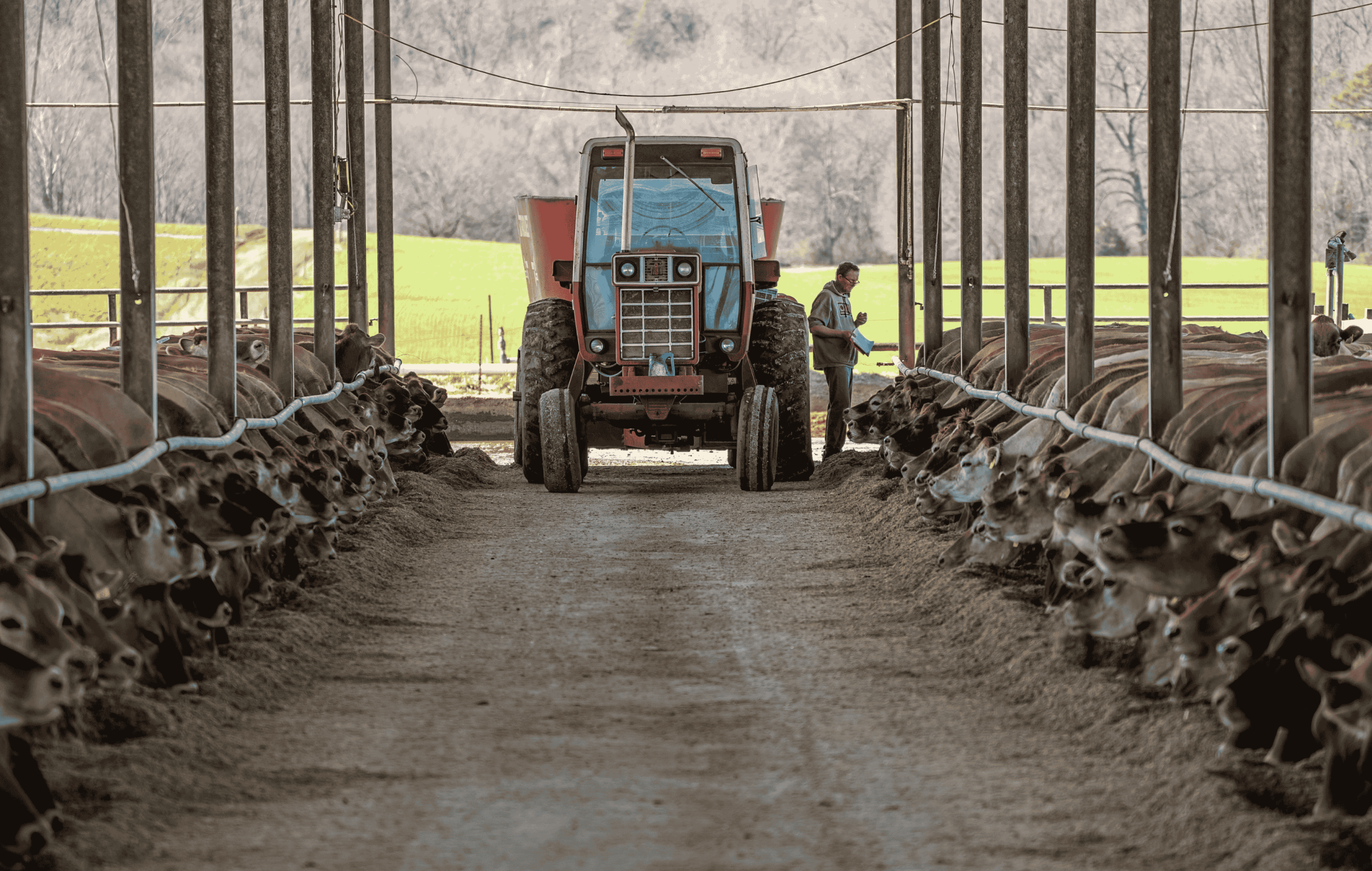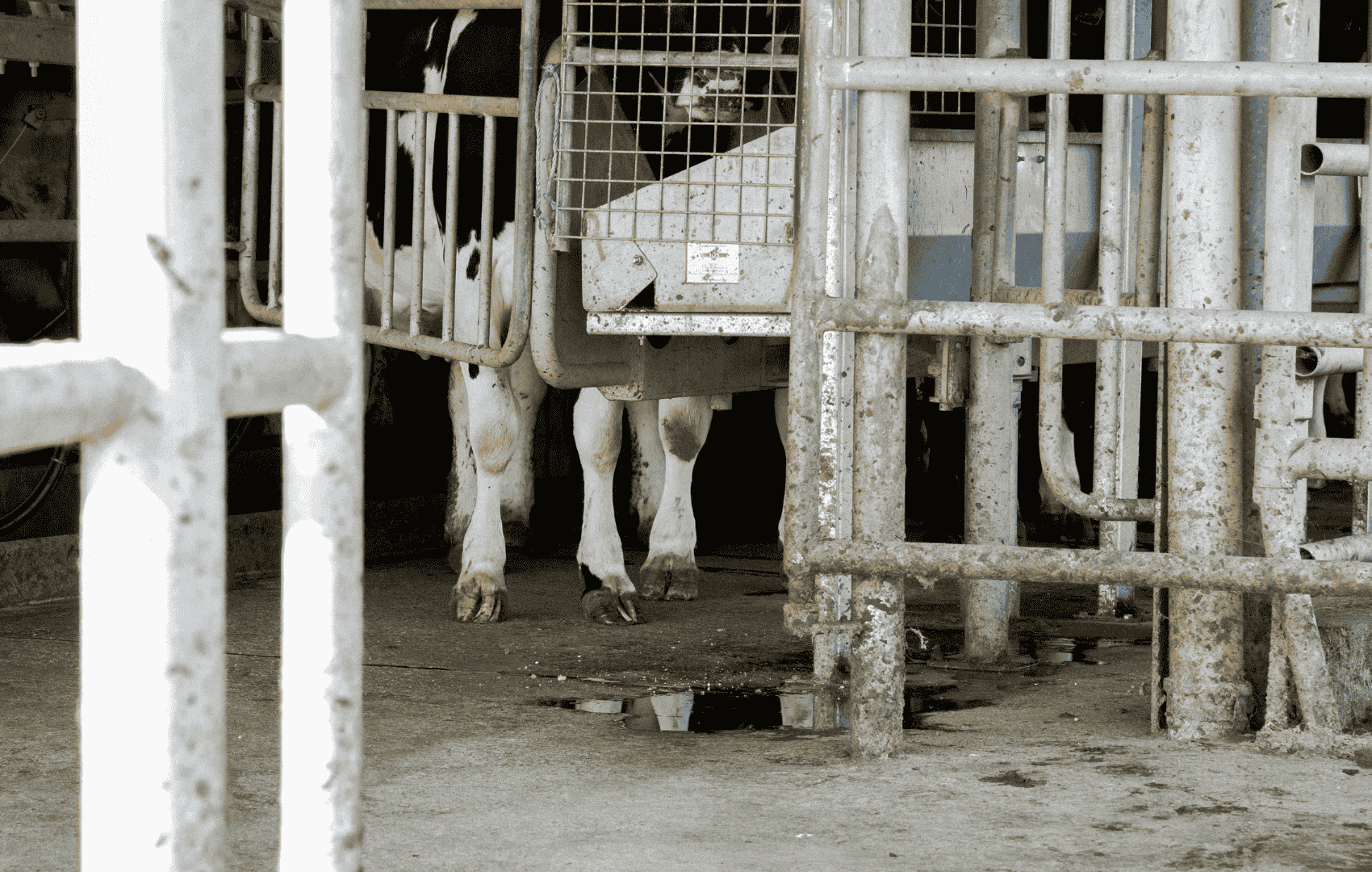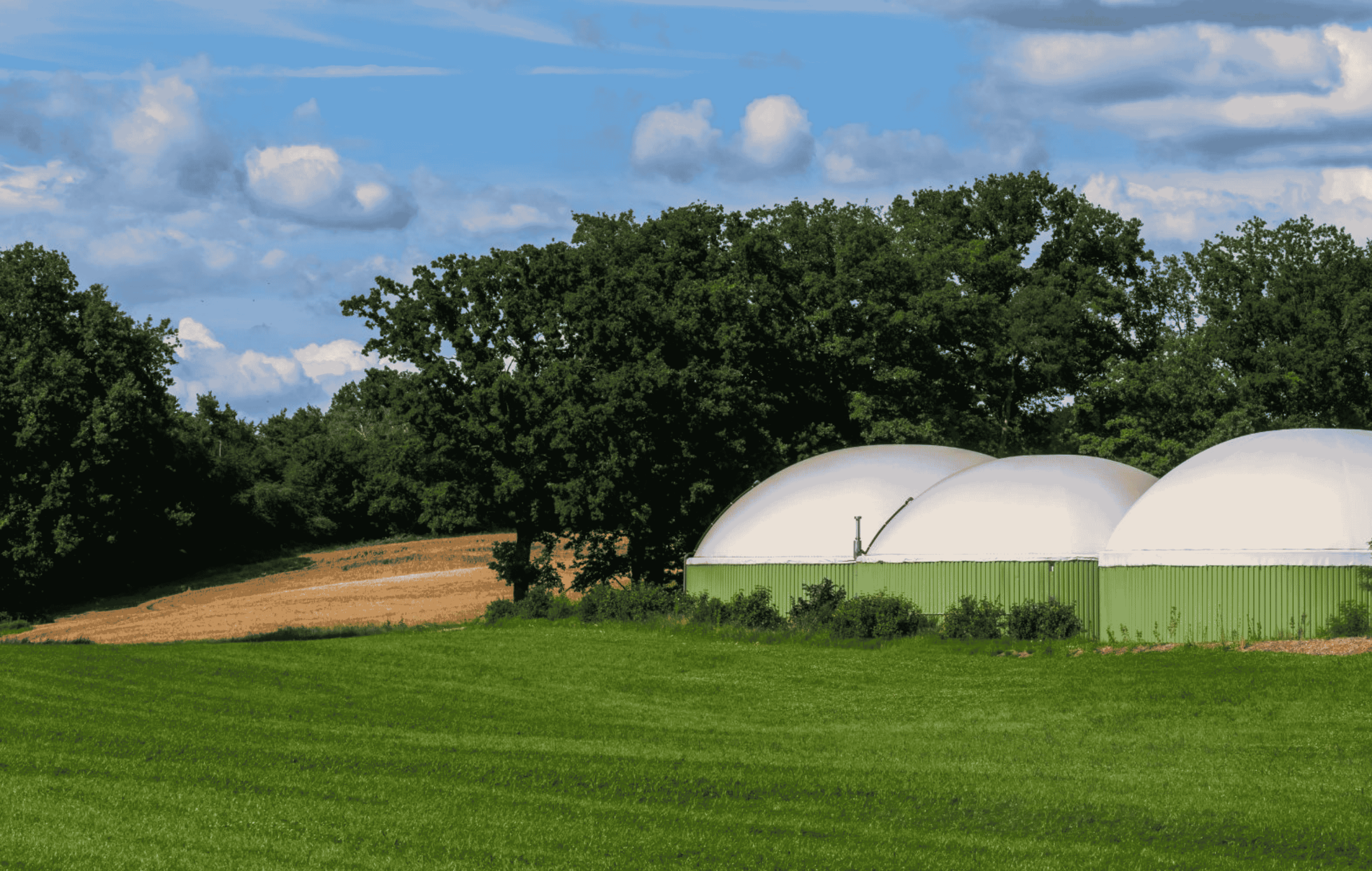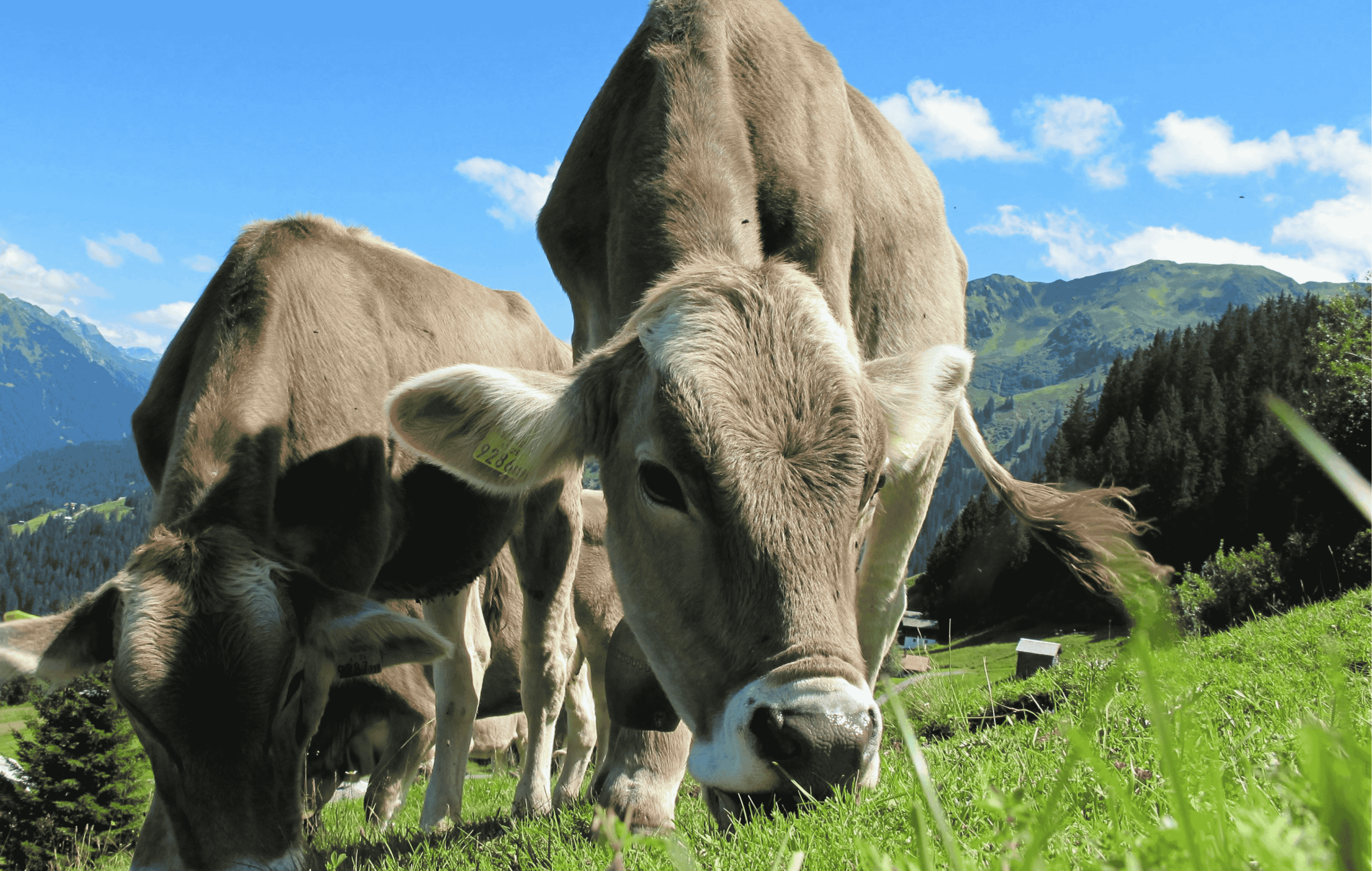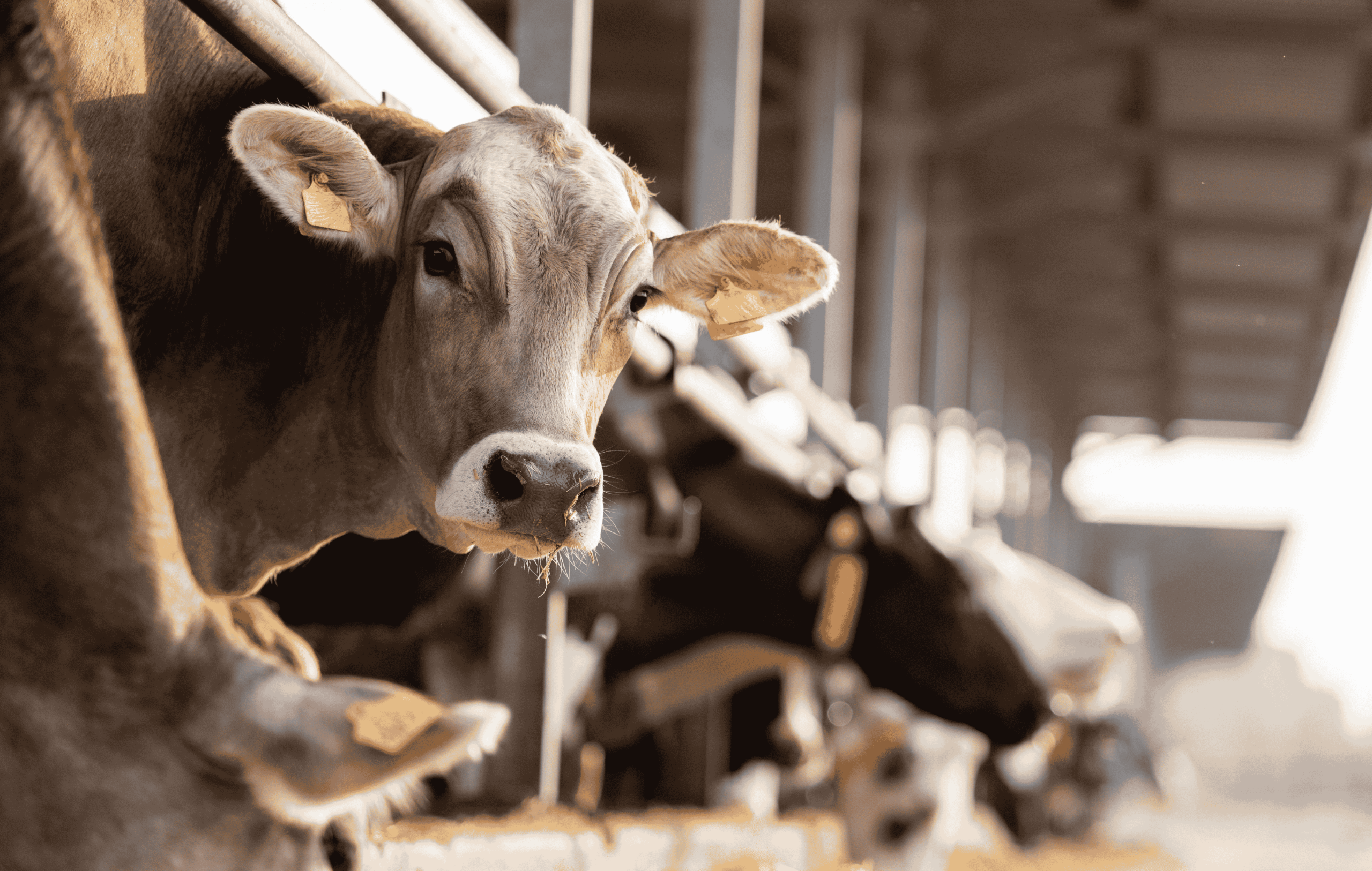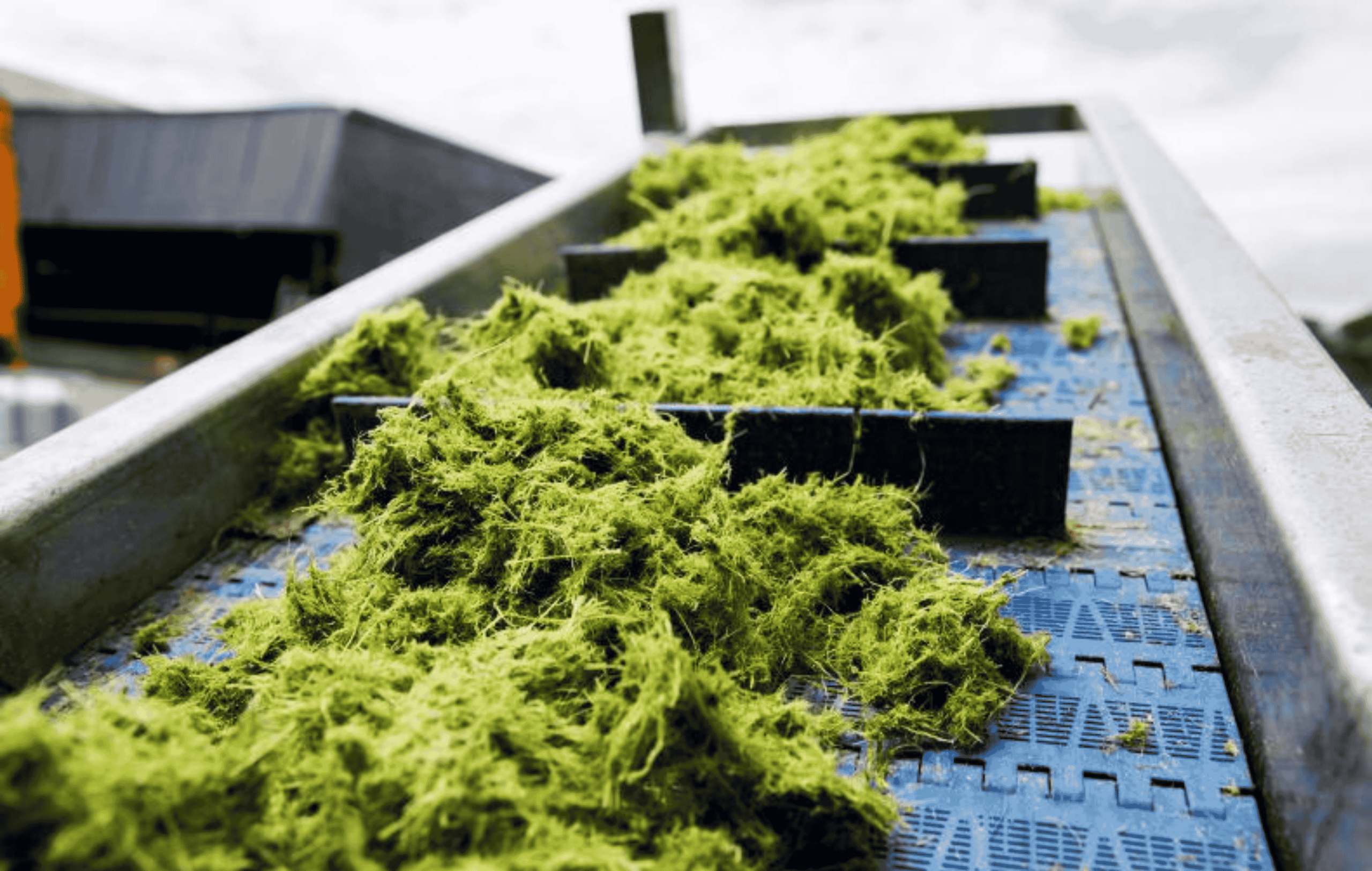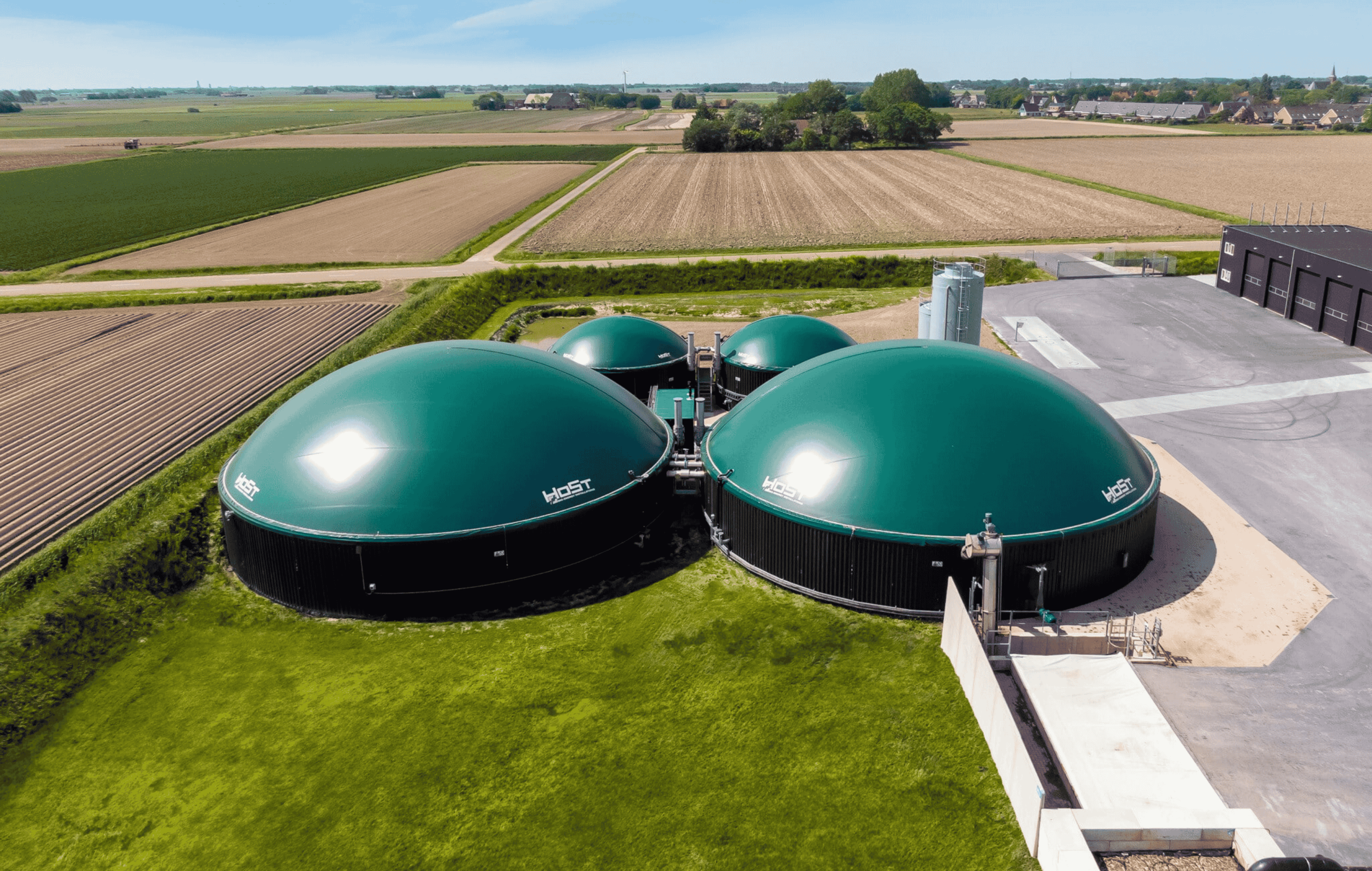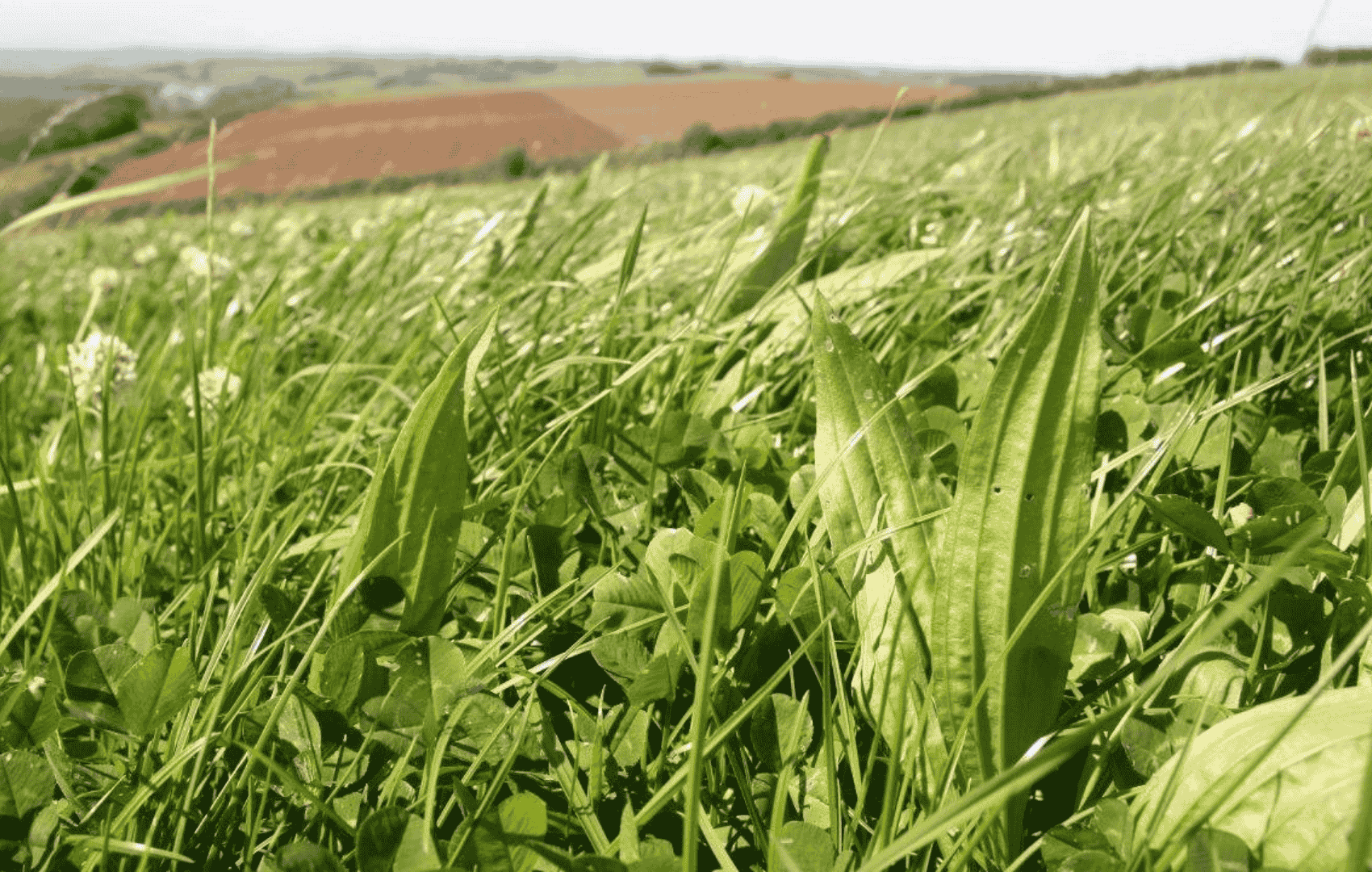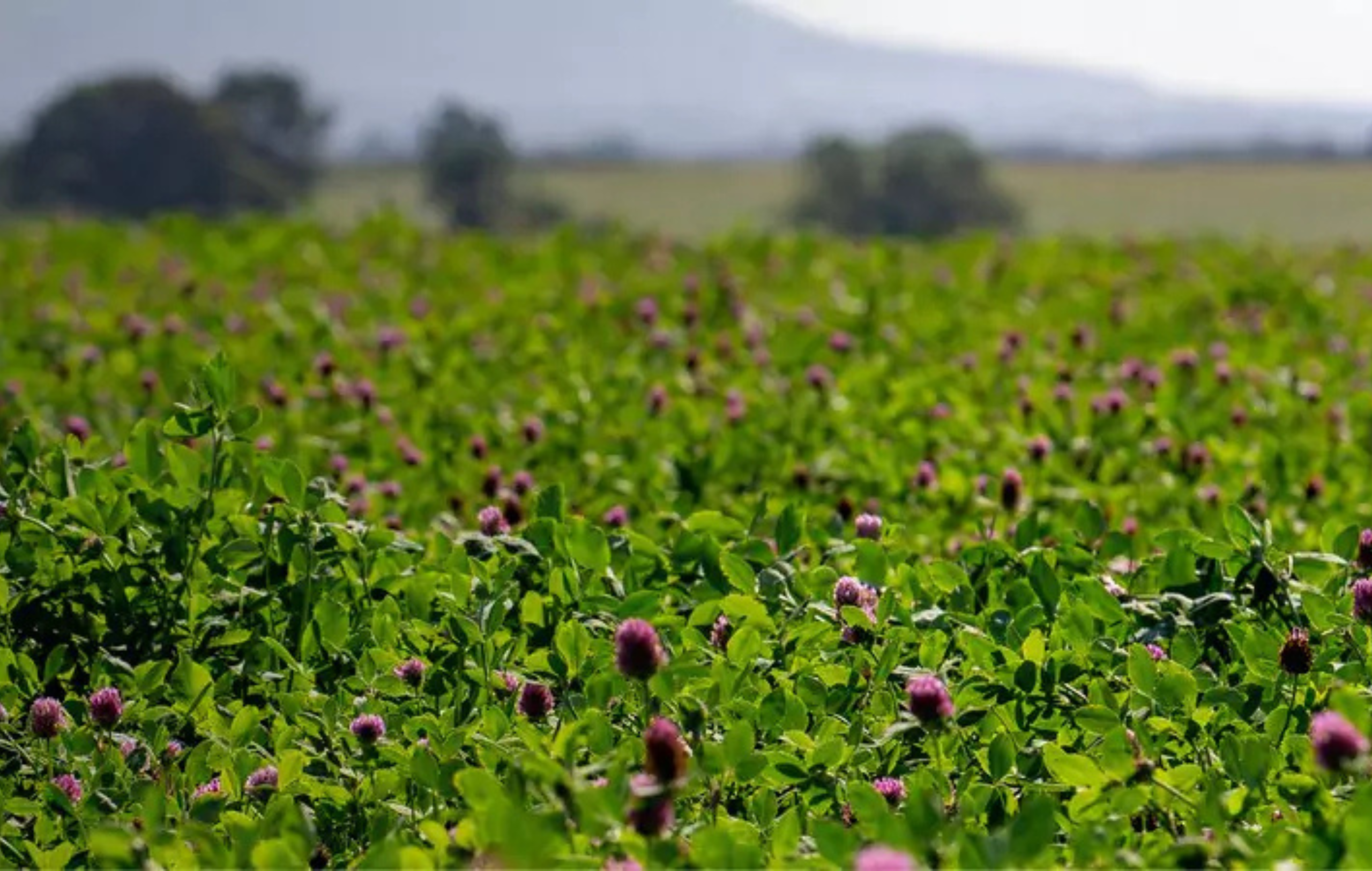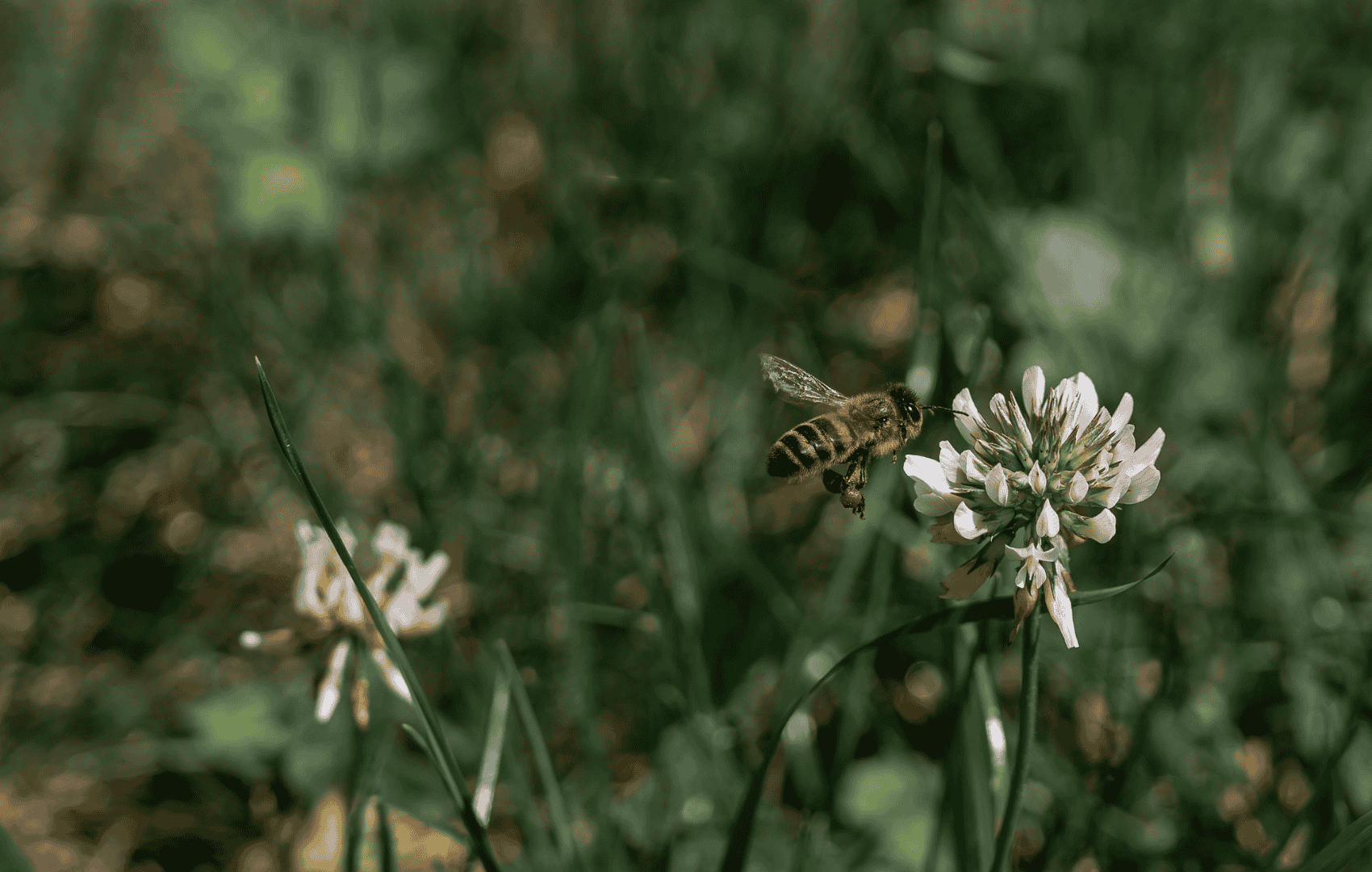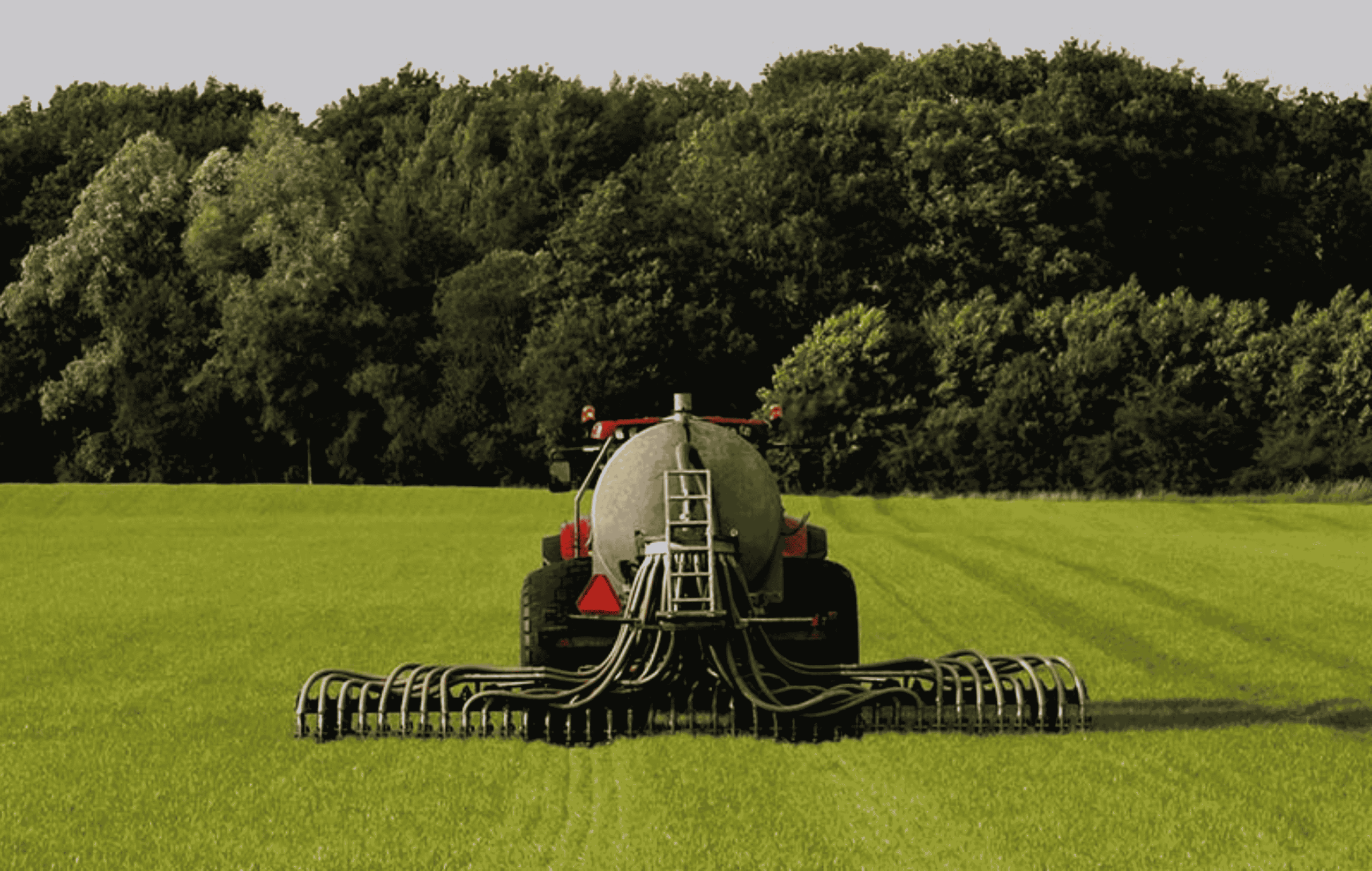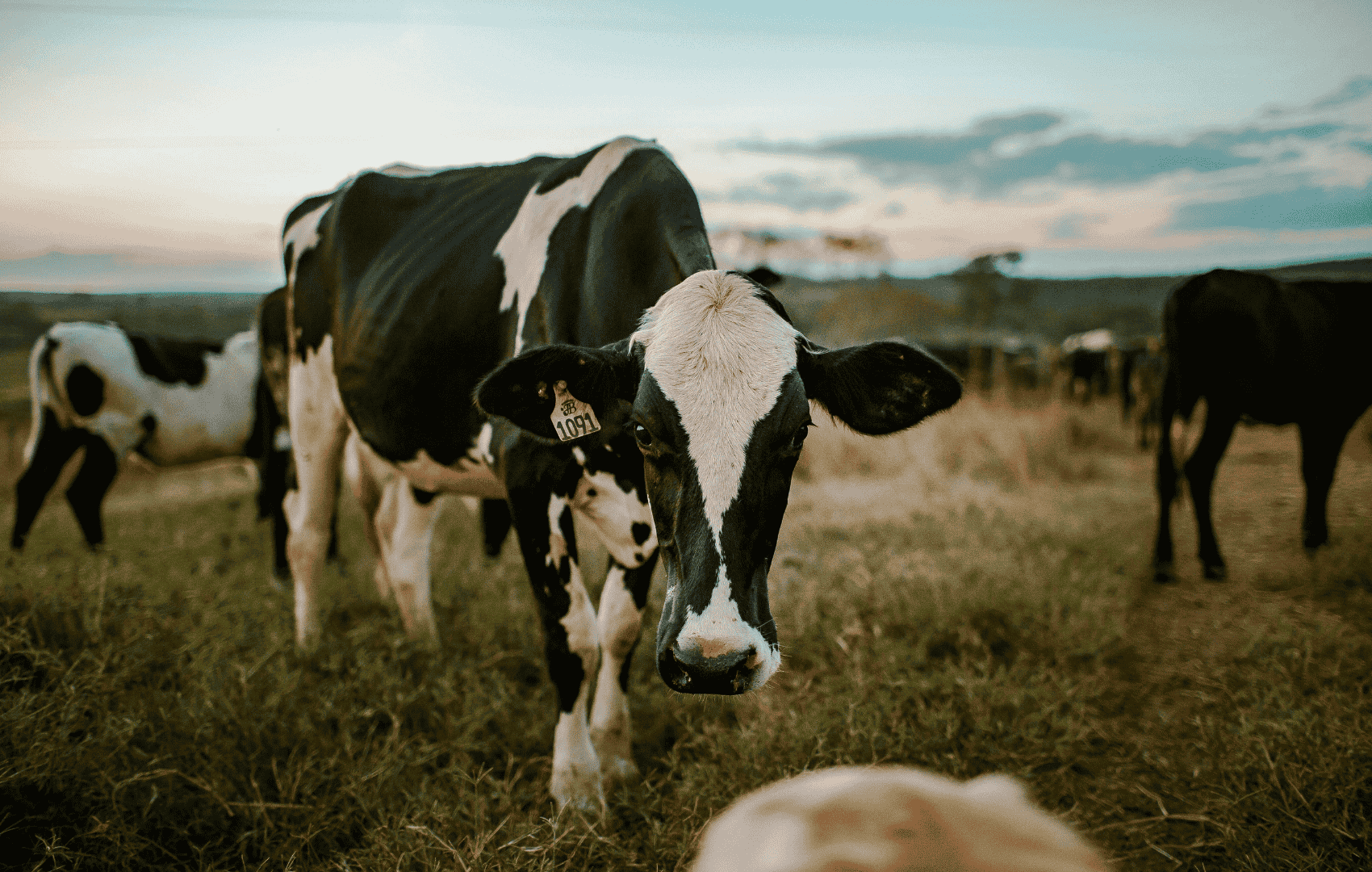Antimethanogenic Additives
Over half of dairy emissions come from enteric methane.
Special feed additives suppress this gas, without affecting milk yield or animal health.
The Climate Issue
Cows produce methane as part of their natural digestion. When they eat, microbes in the rumen break down fibrous feed. One of the by-products is methane, expelled mostly through burping.
On pasture-based farms, this enteric methane makes up over 55 % of total greenhouse gas emissions. It doesn’t hurt the cow, but it’s a major climate issue. Methane is 28 times more powerful than CO₂ and acts quickly in the atmosphere.
Unlike other sources, enteric methane is hard to capture or offset. Without action in the diet, these emissions remain high even on efficient farms.
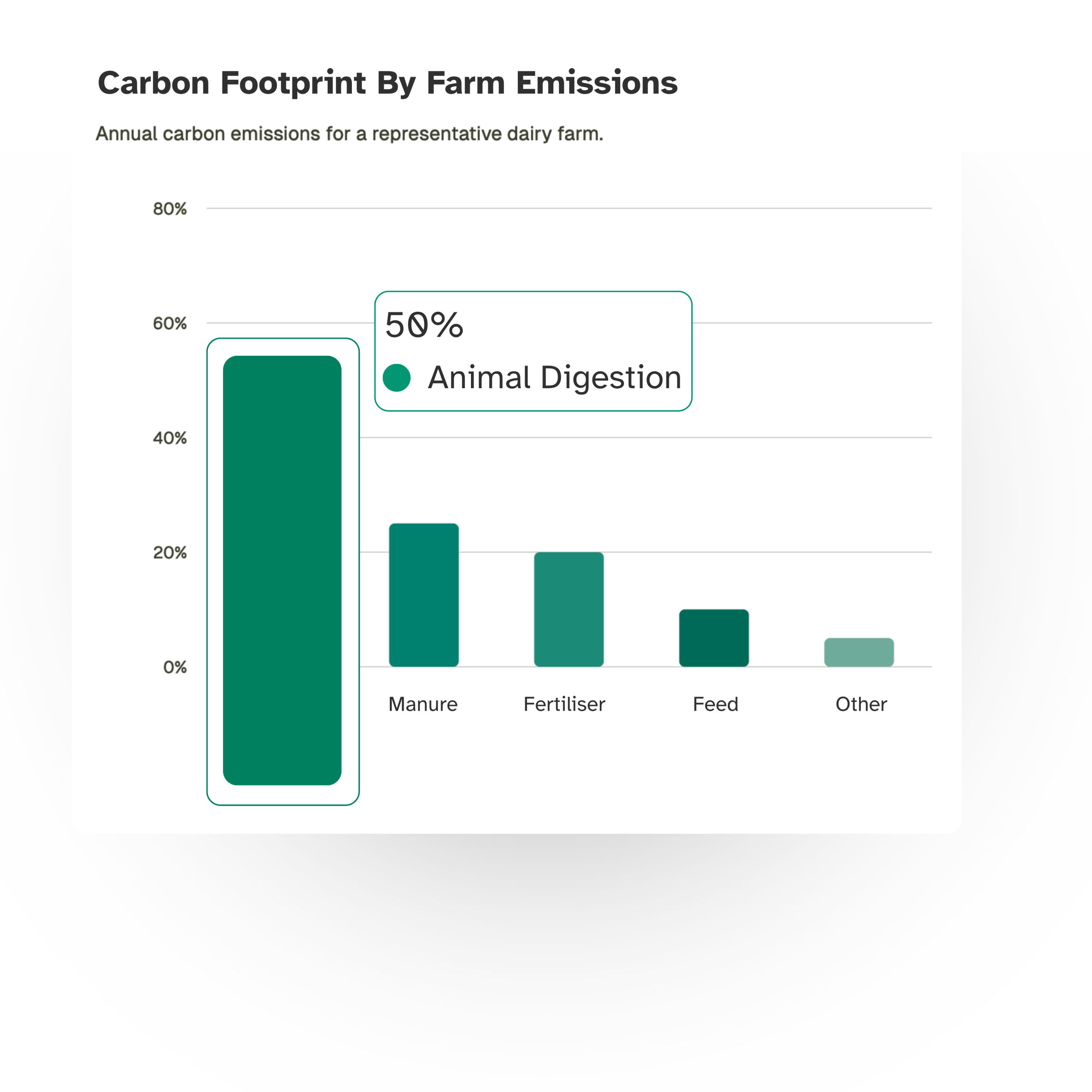
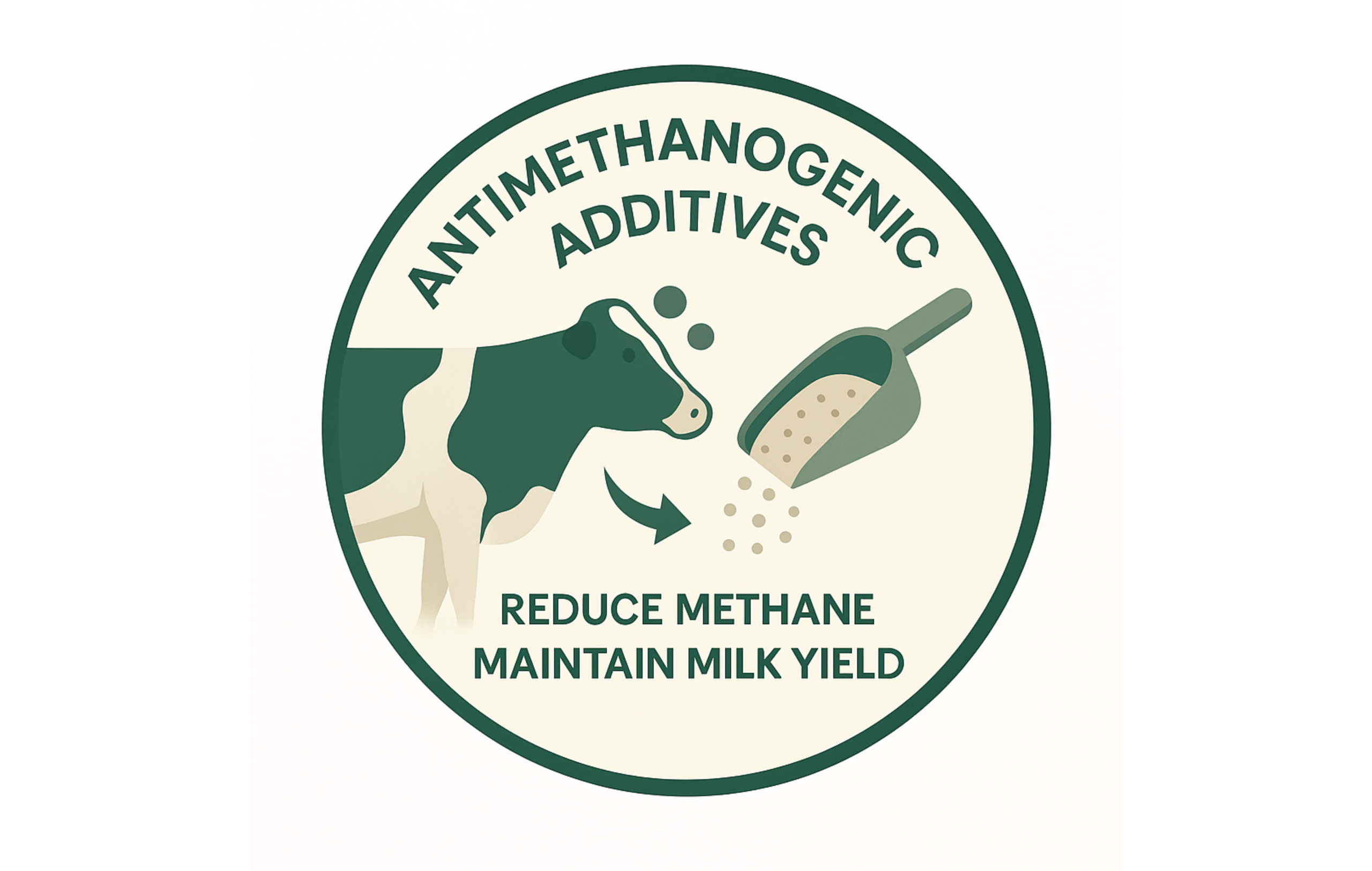
The Solution: Feed Additives
Feed additives offer a new way to tackle enteric methane at source. These natural or synthetic compounds work inside the rumen, where they inhibit methanogenic microbes or alter fermentation.
Additives like 3-NOP (Bovaer®), algal-based products (Algolin®), or essential oil blends (SilvAir®) can cut methane by 20–40 % without affecting milk production. They allow cows to digest more efficiently, keeping energy for growth rather than waste gases.
Even at small doses, these additives have strong effects. Trials show methane drops immediately, with no negative impact on health or fertility.
Key Benefits when using Feed Additives
Cut Emissions
Additives directly inhibit methane production in the cow’s rumen, reducing one of the hardest-to-abate farm emissions by up to 40 %.
Feed Efficiency
By shifting how cows digest fibre, some additives improve feed conversion – meaning more milk from the same feed or less feed for the same yield.
No Yield Loss
Properly tested additives do not reduce milk output or solids. They can be safely included in meal or TMR, even under high-performance systems.
Impact of using Feed Additives
Feed additives such as Bovaer® (3-NOP) are being tested in Irish dairy systems as a targeted way to reduce enteric methane. These compounds act in the rumen to inhibit methane-forming microbes without affecting milk yield or cow health.
Studies across EU pasture systems show that methane-reducing feed additives can:
Cut enteric methane by 20–30 %
Reduce total farm emissions by 4–7 %
Farm Zero C modelled two scenarios for a 93-cow herd at a cost of €75 per cow per year, showing clear emissions savings under both housing-only and year-round application.
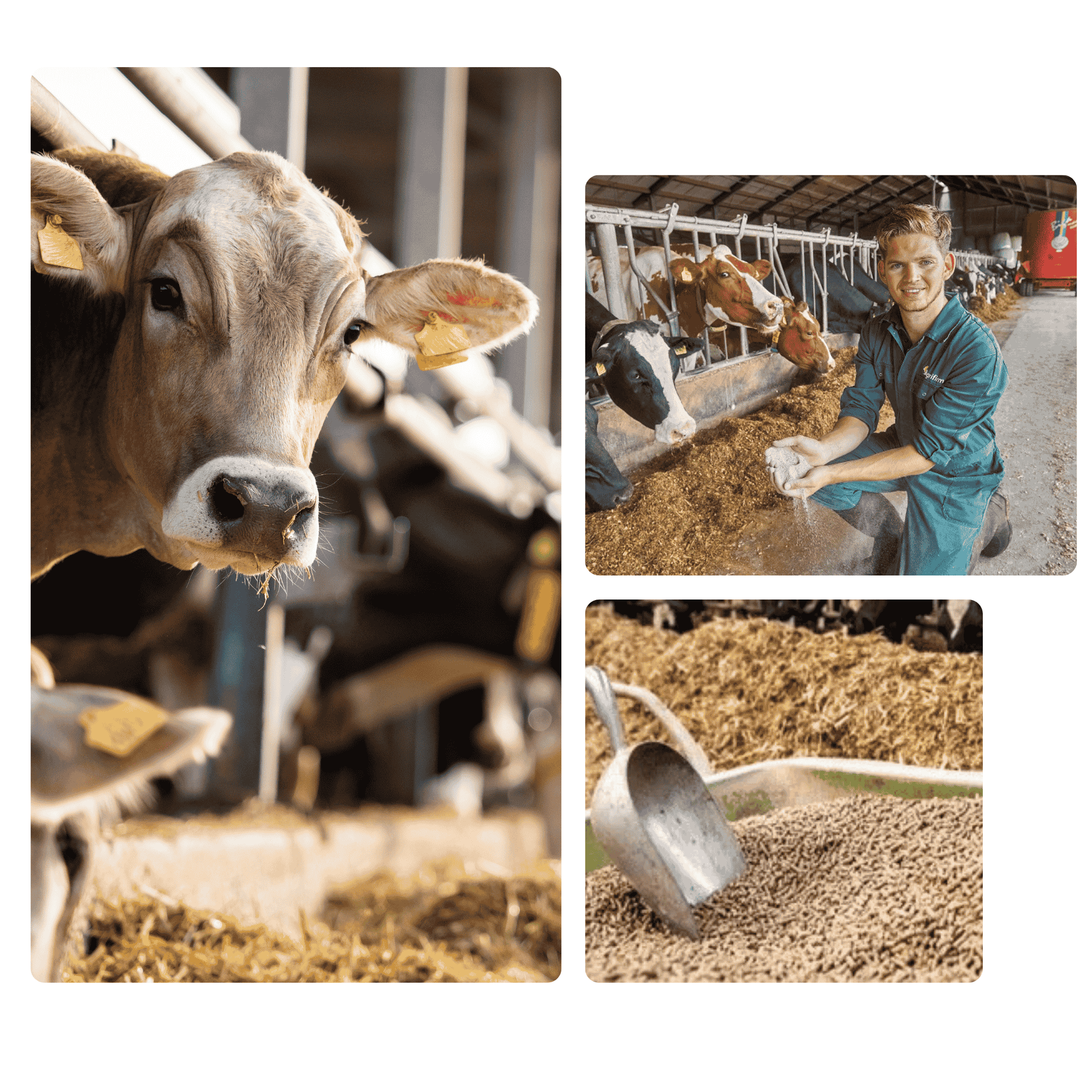
|
Scenario
|
Methane Reduction
|
Net Cost/93 cows
|
GHG Emissions
|
% GHG Reduction
|
|---|---|---|---|---|
|
During the housing period |
28% |
€1744 |
0.924 kg CO₂-eq/kg milk |
3.90% |
|
During the housing + grazing period |
28% (during housing) 10% (during grazing) |
€6975 |
0.895 kg CO₂-eq/kg milk |
6.77% |
Considerations
Additive Type & Supply
Additives like 3-NOP (Bovaer®), Algolin®, and SilvAir® are among the most trialled, but supply chains are still maturing. Cost, consistency, and ease of sourcing must be assessed before on-farm use.
Feeding System
Additives work best in Total Mixed Ration (TMR) or compound meal systems. In pasture-based systems, impact is lower due to variable intake, and daily feeding routines may need adjustment.
Regulations
Most additives require regulatory approval and declarations for traceability and carbon crediting. Always use certified products and keep records to meet EU or national compliance.
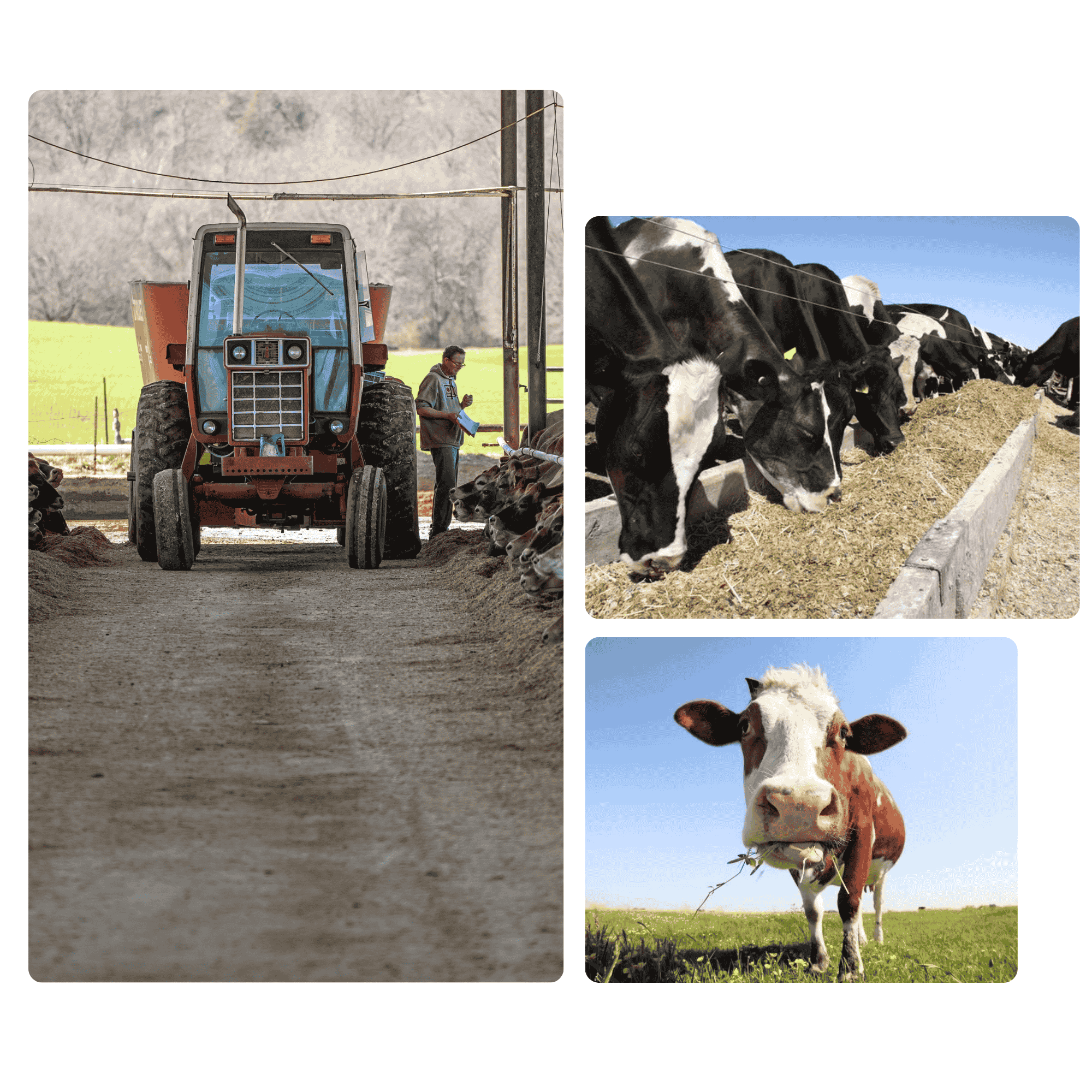
Implementation
Starting with methane-reducing feed additives is straightforward, but results depend on careful planning and follow-through. Below are key steps to help you introduce them effectively on the farm. These support both emission goals and herd performance.
1. Choose the right additive. Consult with your nutritionist or feed supplier to select a product proven for your herd and production system. Use one with verified methane reduction data.
2. Update the ration. Mix the additive into your existing meal or TMR. Ensure cows receive a consistent daily dose to achieve reliable methane reductions without disrupting intake.
3. Monitor performance. Track milk yield, solids, and cow health throughout the trial. Adjust dose or formulation based on outcomes and supplier guidance to optimise results.
Behind the Research
ODOS Tech was founded by Cian White and Alejandro Vergara, two sustainability specialists with deep expertise in agricultural climate action.
Alejandro (left), a PhD in environmental engineering from University College Dublin, helps farmers measure their carbon footprint and implement mitigation strategies to reduce their impact. Cian (right), a researcher at Trinity College Dublin with a PhD in ecology, works on restoring nature to increase biodiversity on farms using satellite imagery to monitor habitats.
Together, they helped lead the carbon and nature-based work for the Farm Zero C project at Shinagh Farm, one of Europe’s first net-zero dairy pilots. In 2020, they launched ODOS, a platform that built smart, science-based tools to help agri-food businesses protect the environment and restore nature.

Research
Teagasc Feed Trials
Irish and EU trials show that feed additives like 3-NOP can cut methane by 30 % or more, even in pasture-based diets. Milk yield remains stable, with minor feed efficiency gains in some herds.
Farm Zero C Pilot
At Shinagh Farm, trials with enteric inhibitors showed immediate methane reductions. The additives were well tolerated and caused no drop in production across the study period.
IPCC Recommendations
The IPCC lists enteric methane inhibitors as a key strategy for climate-smart livestock. While still emerging, these tools are likely to play a central role in future farm compliance and emissions planning.
Discover other Strategies
Slurry Acidification
Slurry acidification reduces fertiliser demand and cuts emissions by up to 5% during storage and spreading.
Slurry Treatment
Treating slurry with hydrogen peroxide cuts emissions by up to 4% and reduce methane by up to 80% during storage.
Slurry Cover
Covering slurry stores cuts emissions by up to 5% and saves €3,600 over 50 hectares per year by reducing synthetic fertiliser use.
Extending Grazing Season
Extending the grazing season cuts emissions by up to 2.7% and boosts milk revenue by nearly €3,000 per farm.
Antimethanogenic Feed Additives
Antimethanogenic feed additives cut methane emissions by up to 28% and cost €6975 per 93 cows annually.
Grass Biorefinery
Grass biorefineries replace soy protein, save €3,000 in feed costs, and cut emissions by 8.9%.
Anaerobic Digestion
Sending slurry to anaerobic digestion can cut emissions by up to 9.4% and generate up to 400 MWh of energy per year.
Multispecies Swards
Switching to multispecies swards cuts emissions by up to 8.8% and saves €4,400 in fertiliser across 50 hectares.
Red Clover Silage
Using red clover silage cuts emissions by up to 8.2% and saves €2,000 in fertiliser across 20 hectares.
White Clover Silage
Incorporating white clover silage cuts emissions by up to 7.8% and saves €4,500 in fertiliser costs over 50 hectares.
Low Emission Slurry Spreading
Low-emission slurry spreading cuts ammonia by 60% and saves €45/h in fertiliser costs.
Genetic Selection
Genetic selection for high-EBI cows cuts emissions by up to 6.3% and boosts gains by €7,800 per 100 cows.
Protected Urea
Switching to protected urea cuts fertiliser costs and lowers emissions by up to 5.6% per kg of milk.
Ready to reduce emissions through Feed Additives?
Talk to our Carbon Footprint & Biodiversity experts on how we can help.

